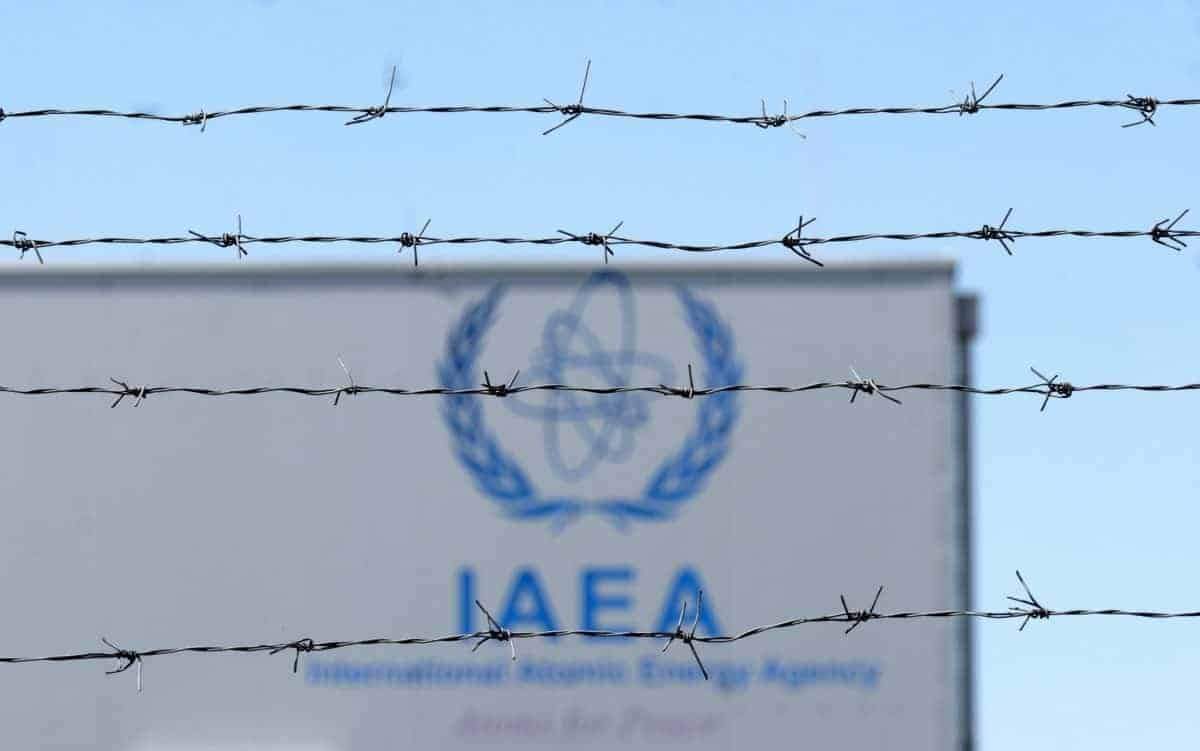UN nuclear watchdog has ‘serious concern’ over Iran

Iran has now accumulated enriched uranium at nearly eight times the limit of a 2015 deal and has for months blocked inspections at sites where historic nuclear activity may have occurred, the UN watchdog said Friday.
The International Atomic Energy Agency (IAEA) noted “with serious concern that, for over four months, Iran has denied access to the agency… to two locations,” according to a report seen by AFP.
The IAEA has questions as to the possible “use or storage of nuclear material” at the two sites and that one of them “may have been used for the processing and conversion of uranium ore including fluorination in 2003”.
The aforementioned site “underwent significant changes in 2004, including the demolition of most buildings”, the IAEA report noted.
A third site where the IAEA has queries about the possible presence of undeclared natural uranium “underwent extensive sanitisation and levelling in 2003 and 2004,” according to the report.
The findings are expected to be discussed at a meeting of the agency’s board of governors, which has been delayed until the week starting June 15.
The United States has been particularly vocal in its criticism of Iran for refusing access to the sites.
A diplomatic source said that they “expect that the board will be united to request Iran to provide access” for the agency.
Escalating tensions
In a separate report, the IAEA warned that Iran’s enriched uranium stockpile is now almost eight times the limit set in a 2015 deal.
The limit was 300 kilograms (661 pounds) of enriched uranium in a particular compound form, which is the equivalent of 202.8kg of uranium.
In comparison to the latter number, the report said Iran’s stockpile stood at 1,571.6kg on May 20.
The highest level of enrichment in the stockpile is currently 4.5%, over the deal’s limit of 3.67% but far below the more than 90% level experts say would be necessary for a nuclear weapon.
A diplomatic source said that Iran’s rate of enrichment had not significantly changed since the agency’s previous report on the issue in early March.
The IAEA says that it still has access to all the nuclear sites needed in order to monitor Iran’s current nuclear activity despite difficulties caused by the coronavirus pandemic.
The agency has been chartering aircraft to get its inspectors to Iran due to the collapse in availability of commercial flights to the country, which has been hard hit Covid-19.
Inspectors are also being tested for the virus before departing for Iran and before they return.
Iran has been progressively breaking the restrictions laid down in the 2015 deal in retaliation for US President Donald Trump’s withdrawal from the accord in 2018 and the US’s subsequent re-imposition of sanctions.
Iran reached the deal to curb its nuclear activities in return for sanctions relief with the United States – under president Barack Obama – Britain, France, Germany, Russia and China.
Last week the US said it was ending waivers in its sanctions for nations that remain in the Iran nuclear accord, bringing the deal further to the verge of collapse.
Tensions between Tehran and Washington escalated after Trump abandoned the deal and the long-standing enemies have appeared to come to the brink of a direct conflict twice in the past year.
The most recent was in January when Iran fired a barrage of missiles at US troops stationed in Iraq in retaliation for a US drone strike that killed Qasem Soleimani, a top Iranian general.
Iran’s Foreign Minister Mohammad Javad Zarif on Friday brushed aside Trump’s hopes of diplomatic progress after the two countries carried out a prisoner swap.
“We achieved humanitarian swap [despite] your subordinates’ efforts,” Zarif tweeted, emphasising that it was the US that had walked away from the 2015 deal.
Photo: The International Atomic Energy Agency has expressed 'serious concern' about being denied access to two locations in Iran. Photo: AFP
Link: https://asiatimes.com/2020/06/un-nuclear-watchdog-has-serious-concern-over-iran/











